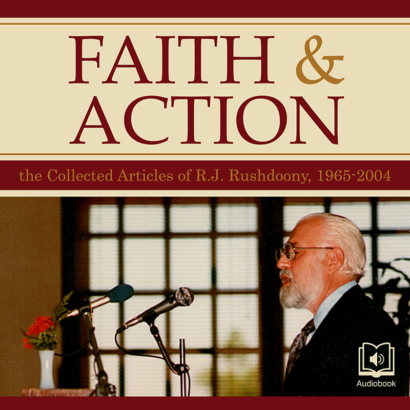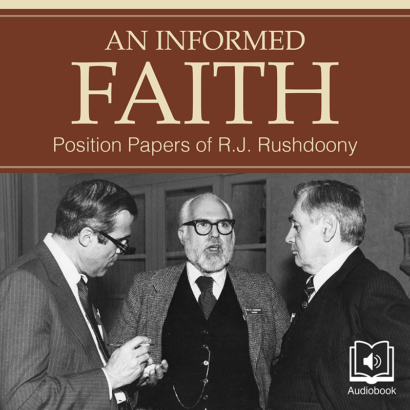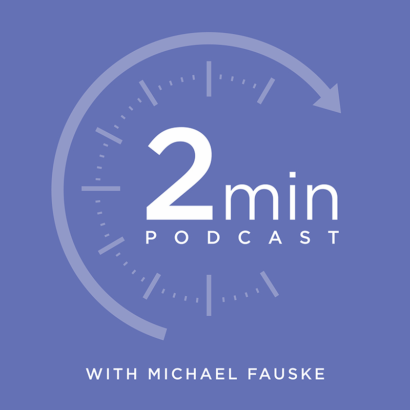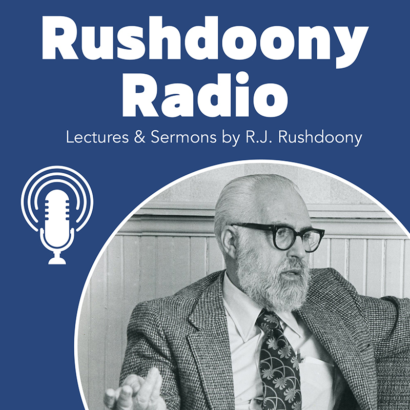
D is for the Department of Children and Families
• Mar, 12 2024
D is for the Department of Children and Families. How state agencies often violate the rights of children and families more than protect them, and what parents and teachers need to know to help.
Hosted by
Husband, Father, Pastor, Teacher, Podcaster, and Christian Education Advocate
- Series: Preschool Pioneers
- Topics: Child Rearing
Jeremy Walker (00:15):
Welcome back to another episode of Preschool Pioneers. I am your host, Jeremy Walker. You can follow us on our parent network, CR101 Radio, on social media such as Facebook, Twitter, Gab, and YouTube. And you can subscribe to this podcast on your preferred platform so you never miss an episode. Visit cr101radio.com/preschoolpioneers for these links.
(00:44):
Well, welcome back guys to another episode. I am so happy to have you back again with me on Preschool Pioneers, where we will talk about why Christians should become teachers and why Christian parents and Christian teachers are so very important and vital to this world. This episode is entitled D is for the Department of Children and Families, how state agencies often violate the rights of children and families more than they protect them and what parents and teachers need to know to help.
(01:26):
I want to start this episode with our scripture reading, Ephesians 6:1-4, which sets the stage for children and families. "Children, obey your parents in the Lord, for this is right. Honor thy father and mother, which is the first commandment with promise, that it may be well with thee and thou mayest live long on the earth. And ye fathers, provoke not your children to wrath, but bring them up in the nurture and the admonition of the Lord."
(02:01):
We've said it before, but the family is the most basic institution on the planet. Before anything else in the world, there is the family. The family is comprised of two things, a man and a woman. That is a family, even if there are no children within that family as well. By extension, children are added to it. That can be one child and that can be 10 children. That is the family as God has made it.
(02:30):
Our scripture reading has kind of established how we are supposed to function at the most basic levels of society. Children, their first and primary duty is to obey their parents in the Lord. That means that the parents are restrictive about what they can and cannot ask the child to do. If a parent tries to tell the child to do something that is beyond their scope, beyond their authority, the children are no longer under this obligation to obey their parent.
(03:09):
That's why it says, "Obey your parents in the Lord, for this is right," because all authority structures even starting at the most basic roots, which is the family, there is a limitation and an obligation of obedience. By extension, this would go into a school setting where the parents who are responsible for those children under God can give their children to other people, like say a school.
(03:39):
And then that school now has the parent of location responsibilities. They are now fully responsible for that child while the parent is absent. They have authority over the child because the parents have given them that authority. And then the children have the same obligation to listen to their teachers as they would their parents in the Lord, for this is right.
(04:06):
With this authority structure and their obedience to honor father and mother comes the promise of a long life, comes the promise of blessing. And of course the parents, not just the father, but the parents are not supposed to provoke their children to wrath, not to be petty tyrants, not to be petty despots, but good parents with their children's best interest at heart. That's what the parent is supposed to do to bring them up in the nurture and admonition of the Lord.
(04:40):
This at its basic root is what the family does, what the school should do, and what every other human institution is supposed to do. This includes the church, this includes the state, the civil government, and anybody else who is dealing with people. Their basic obligation is the well-being of others.
(05:06):
Governance is real. Civil government has a real authority over people, but it is limited. Unto the Lord, under the Lord, obeying people in the Lord, this is right, but all authorities are limited. In this episode, let's talk about what is called, and it's changed names over the years, the Department of Children and Families.
(05:33):
Now, I want to start off by saying this, what you're about to hear is not intended to be what people call legal advice. This is simply wisdom based on my personal life experience and first-hand personal accounts. If you want up-to-date legal advice on these subjects about how to deal with government officials or the Department of Children and Families or otherwise, you need to seek legal counsel to do that, because one thing that I've learned over the years is a very important subject when dealing with higher authorities.
(06:09):
Many times, as you heard in the beginning, these higher authorities do not feel that they are limited. They do not have your best interest at heart. In fact, if you are arrested, the Miranda Rights says you have the right to remain silent and anything you say can and will be used against you in a court of law. And then it proceeds from there talking about the right to an attorney and so forth.
(06:38):
It is extraordinarily important to remember that we do have rights in the U.S. The sad part is, is that the family structure is under attack. It shouldn't be, but it is. If there are crimes within the family, we already have civil government set up to handle crimes, crimes against father, crimes against mother, crimes against children. We already have it set up. They're called the police. We have courts that are already set up to deal with crime. We already have laws. And if you break those laws, there are consequences.
(07:17):
You do not need a department set up specifically for children and families to assess criminal activity. We already have the police. Since we know that the Department of Children and Families does not serve the purpose as law enforcement, what purpose does it serve?
(07:37):
Well, I'll tell you. In the United States it has gone away from a godly focus, a Christian purpose to support and protect the family. That's what it should be doing. But instead it's gone more along the lines of what happen in very corrupt societies, kind of like the ones that were involved in communism and Nazism and others.
(08:01):
What they wanted is they wanted the state to be the all-powerful God. That's where the allegiance was. That's who all everyone listened to. There was no institution competing with it for the loyalty of its citizens. And the primary institution who is a threat to a civil government which has gone awry, which has become tyrannical, is the family because the family does two things.
(08:28):
One, it is the one who propagates religion amongst its members and teaches it. And two, it controls and passes on private property. So a tyrannical government or one who is leaning that direction will see the family, the parents, as an obstacle to their power. What they will do, they want society to turn on each other. They want you scared of your fellow neighbor, your fellow citizens out there, and they want the children not to see dedication to their parents or to their family, but to the state.
(09:05):
So what do they do? They come into the society at large and say, "If you want to get somebody in trouble, turn them in and we will go after them. We will protect you from your fellow man. And if you just want to be mean to your fellow man, we will be the hammer for you. And two, for the parent, if the child doesn't like you, come to us, children. Tell us about your parents, and we will protect you from your parent. In fact, if you want to hurt your parent, we will be the hammer that you can use to do that."
(09:45):
Unbeknownst to all these people who the communists call useful idiots, hurting your fellow neighbor, hurting your parent is destructive of both you and society. Once again, honor thy father and thy mother, which is the first commandment with promise, that you may live well and long on the earth.
(10:07):
So people that are trying to hurt their neighbor by using a tyrannical government and children who are trying to hurt their family or their parents by utilizing a tyrannical government and its arid powers, they are not going to be blessed. Nothing good is going to come from people who want to break God's commandments and harm others. Also, that same tyrannical government is also not going to be blessed as well because civil government is also underneath God's authority and it also is supposed to promote the respect of the parents by the children.
(10:51):
However, the Department of Children and Families has done anything but that. In the government schools for a generation or more, they have been teaching children to turn in their parents just because they don't like them, just because they don't like them or because they're angry, they don't give them what they want, and they become the hammer and parents have to be afraid of their children.
(11:14):
First of all, don't give your children over to a system that's going to deliberately teach your children against you. You can't blame some kind of backwards government, some tyrannical evil regime, if you want to see it that way, as being the bad guy who's harming your children and destroying your family. It's you. You are giving your children to be educated to these people.
(11:41):
Let's move on. You should have the idea and the concept of hiding behind the attorney. It's a very vital tactic that you should learn and practice in a society in which you have to protect yourself from a government that is not doing its purpose. It's out of joint, you could say. Whenever you're following advice from an attorney, you now can say, "The attorney told me to do this." And in the United States of America, this is a very safe place to be.
(12:12):
Never ever think that you are better off by yourself. You're not. One, these people who are out of joint, if they are a government official, it could be police or DCF or any other department that is official, if they're not doing their jobs as they're supposed to, they don't have your best interest or your children's at heart, they're not going to respect you and they're not going to respect your rights. They're also not going to tell you what your rights are and they're not going to restrict themselves.
(12:44):
When you have an attorney, they both, one, do have your best interests at heart. They're on your team. They will help you understand your rights and they will help keep these other people out there, Department of Children and Families or otherwise, in check. They are now a professional witness against people who are trying to step on your rights.
(13:07):
The sad part is in America today, we do still have a vast array of rights. We just don't know them. And because of that, tyranny spreads and people are too ignorant to understand this concept. See, those who work on behalf of the government agencies are typically under-educated and they're only given the standard operating procedures of that current agency.
(13:30):
I've dealt with the Department of Children and Families for 25 years, and I can tell you that the vast majority of them do not understand your rights. The ones that do don't want you to know them. There are very many different types of people who go to work for the Department of Children and Families. Quite a few of them are well-meaning people, and they do have a good heart for children and for families. I've run into quite a few people like that.
(13:59):
I've also run into people who are just petty tyrants. These people go into this job because they just want to flex what they think is power and muscle to make you do what they want. As an example, I had one time one of these Department of Children and Families workers come in to our school and they wanted to do an investigation. Of course schools always help with investigations. We do have rights though. So do teachers and so do the children and so do the parents.
(14:31):
I remember telling this guy who came in in a football jersey, supposed to be a government official on an official case wanting to do an interview. This is how professional he was. When I told him that he could definitely talk to the teachers, we would certainly help him with his case in any way, shape, form, or fashion, and it had to do with the family and the child and they just wanted testimony from us. No problem. Glad to help. But we do have a liaison and attorney who helps us do this to set up things, to sit in on the meetings and to make sure that everything is done properly because after all, as a school, you don't want them to lie about you and say you were uncooperative.
(15:13):
Well, guess what? Asking for an attorney apparently today according to DCF and I had this seen on paper, written on paper, that is uncooperative. In other words, if you want to be cooperative, you have to give up your rights and not utilize an attorney. This is what I mean by people who don't want you to have the rights you currently possess. And you, if you're ignorant, will give them up willingly and you will be abused.
(15:44):
Well, when I told this man who was in a football jersey that he had to contact our attorney, set up the meetings, we'll talk to anybody he wants to, no problem, the man became aggressive, almost shouting at me. And then I was sitting at my desk and he got within about two feet of me, squatted down and got in my face as if we were about to rumble. I just looked at the man, who he thought he was threatening me, which he was not. I says, "You need to step outside the office right now and you need to contact your boss. When you do, we'll talk then and I'll contact my attorney."
(16:18):
Well, you can guess what happened. He stepped outside, he called his boss, I called our attorney. And then as soon as five minute goes by, the man has to come and say, "Well, apparently you are correct." Well, yes, I was correct, and you should have been more informed and you should have been professional. Instead, you thought as the ex jock meathead wearing a football jersey, not being professional, you would try to intimidate somebody almost physically to usurp the rights of not only the center and the teachers and the parents and the children.
(16:57):
There was another case where we once again, 25 years, there's always parents and children and cases because they want to get involved in everyone's life and mostly frivolously. In fact, I've only known one case of any sorts where anyone should have been involved in any of these cases.
(17:16):
But we were down at the offices for the Department of Children and Families, their kind of office hub, and this was with the supervisor, not just with one of the general investigators. We had attorneys there, teachers were interviewed, we helped with the case, did everything we could to provide testimony, a big nothing.
(17:35):
However, at the end I had the supervisor pull me aside and say, "We really wish you had different protocols." And I said, "Well, what kind of protocols are you talking about and referring to?" They said, "Well, we'd really just prefer to talk to people on their own." I said, "On their own? You mean without an attorney?" They said, "Well, yes, that's exactly what we would prefer."
(17:59):
I said, "Does the teacher or anybody else have a right to an attorney?" "Well, yes they do." I said, "Well, until that changes, we are going to promote the idea of having an attorney present when being questioned by the Department of Children and Families." And that was the end of the conversation.
(18:19):
Once again, they don't want you to utilize your rights to protect yourself, to keep them in check. You also have to understand that they will not tell you what you can do. See, DCF, the Department of Children and Families, wants to interview children without their parents' permission and without their presence. See, they cannot take children without a court order.
(18:47):
We've had the DCF come in before in our centers and custody cases and otherwise, and they say, "Well, we are going to take the children out of the center." Guess what? They don't have that power or right. And so people like us have protocols and said, "That's perfectly okay. Go get a police officer that has a court order or otherwise from a judge that says you have the right to take the child, and the police officer can take the child and give them to you."
(19:18):
The vast majority of people don't understand that DCF cannot force parents to do pretty much anything without an actual court order, but that's what they want. They want you to just willingly participate to think that they have the power that they don't actually possess.
(19:36):
I had another parent that I knew that was at our school before and they'd left and they kind of called us back. They'd gotten involved and tangled with DCF. They were trying to write up kind of a parental agreement, I guess you'd call it, where the father and the mother were going to agree to certain things and they were going to be restricting their limitations and access to their children and many other things.
(20:01):
But this wasn't anything legal. There was no legal document that stated that the parents were waiving their rights for anything. They were going to basically do it electively. And the threat was, we will take your children from you. Why would you threaten to do that, you nefarious people? When this is not needed. This is not necessary. If it was, we have courts. There are courts that handle this kind of stuff. So take us to court, let's go down and let's see what actually takes place.
(20:35):
You do not need to speak to DCF without an attorney present. One thing that they will not tell you, which they will handle your paperwork later, is that you have the right to record them, either audio or video. You have the right to have an attorney present. You don't have the right to not talk to them at all or to try to flee from them, but they do have certain things, but they will violate your rights if you let them. You should always be polite at times and respectful when you're dealing with people, even if you find it annoying, but you should always know your rights.
(21:10):
The sad part was, I remember one time dealing with them a long time ago, my first engagement, and after I had talked with them, they then handed me a pamphlet as well and said, "Oh, by the way, these are your rights." I was like, "Hold on a second. I'm being told this later?" The police have to tell you your rights before you talk to them. They're talking to people before anything else. I was very young at the time and I didn't know any better. In the pamphlet, it tells you that you have the right to record them and you have the right to an attorney.
(21:44):
You will be allowing people to violate your rights if you are not careful. You have to remember that there are well-meaning people who work in law enforcement and DCF and everyone else under the sun, and we would hope that all of them would be working towards the protection of the family and the children. Absolutely, we wish that was the case, but we live in a fallen world where that is not the case. And there are absolutely people out there that do not want the family to be safe and together. They want to split children.
(22:20):
Quickly here I will touch on two things, or really one thing, about the current state of education to kind of point out here exactly what I'm talking about and where kind of this idea comes from. Now, this came out of Canada, this idea, Canada, where a member of the Canadian Parliament stood up on the floor of Parliament and declared that parents have no rights. You heard that right. They have no rights. They have responsibilities is what he said.
(22:59):
These are the same people that say it takes a village to raise a child, not a family. They'll also say that we need to get rid of the idea that the child belongs to the parents, this kind of private, not ownership, but private responsibility. The state, the society, the village is the one that needs to raise them.
(23:21):
Why? Because they do not want you, Christian parent primarily and also Christian teacher, they don't want you giving this child the idea that there is a God and that there is somebody who could restrict their power and authority, that there is a moral standard that is higher than their own, and that you might hold them accountable and say, "Hold on a second here. I will obey you in the Lord, but otherwise speak to my attorney." That's something that they absolutely do not want.
(23:57):
Well, for me, I believe that parents in particular and teachers, our job is to protect children and it is to protect them at all costs from anyone and anywhere. We are supposed to have the children's best interest at heart. Absolutely, that is our job, but you must have your walls up. You must utilize every legal means to protect your family, but first, it starts with you doing your job. Keep your children safe by being a good Christian parent and a good Christian teacher. Love those kids and keep them safe. This is Jeremy Walker signing off. God bless.
More podcasts in series

B is for Behavior
Jun 10, 2025

A is for Apprenticeship
Mar 03, 2025

Z is for Zombieland
Dec 19, 2024

Y is for Your Body, You Choice
Nov 10, 2024

X is for Xenophile and Xenophobe
Oct 21, 2024

W is for Whiteness
Sep 23, 2024

V is for Values
Sep 16, 2024

U is for Uncommon
Sep 07, 2024

T is for Transformers
Aug 26, 2024

S is for S.T.D.
Jul 24, 2024

R is for Raising Rebels
Jul 23, 2024

Q is for Quitting
Jul 22, 2024

P is for Pyramids
Jun 26, 2024

O is for Opportunity
Jun 19, 2024

N is for Nationalism
Jun 13, 2024

M is for Mind Magnets
May 19, 2024

L is for Lowering Standards
May 12, 2024

K is for Kool-Aid
Apr 28, 2024

J is for Justified
Apr 15, 2024

I is for Integration
Apr 08, 2024

H is for Homeschooling
Apr 01, 2024

G is for Godly Fathers
Mar 25, 2024

F is for Flat Earth
Mar 18, 2024

E is for Economics and Entrepreneurship
Mar 12, 2024

C is for Childbearing
Mar 12, 2024

B is for Bears, Beets, and Battlestar Galactica
Mar 12, 2024

A is for Abandonment
Mar 12, 2024









